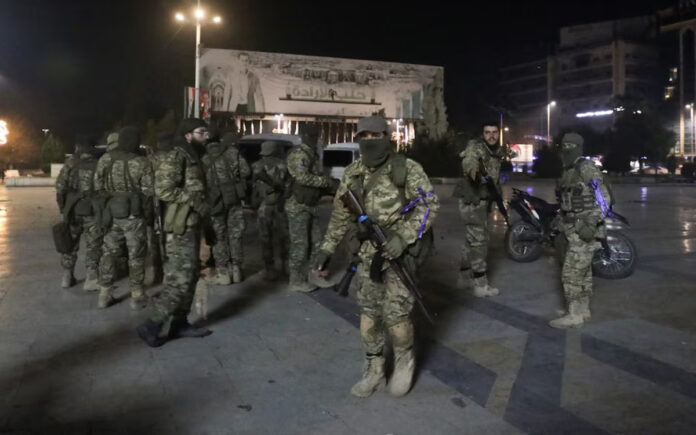Damascus: The Syrian army announced that dozens of its soldiers were killed as rebels launched a surprise attack on Aleppo, marking the most significant challenge to President Bashar al-Assad in years. The offensive, spearheaded by the Islamist group Hayat Tahrir al-Sham, has shifted frontlines that had remained largely static since 2020.
The renewed violence in the war-torn country, which began in 2011 and has claimed hundreds of thousands of lives, underscores the enduring instability despite years of relative calm following Assad’s consolidation of power with support from Russia and Iran.
Rebels Advance in Aleppo
Aleppo, a strategic city held firmly by Assad’s forces since 2016, was the scene of fierce clashes as rebels penetrated significant areas. Ali Jumaa, a rebel fighter displaced from Aleppo in 2016, expressed elation over the victory:
“Thank God we just returned. It is an indescribable feeling,” he said in footage broadcast from inside the city.
The Syrian army confirmed insurgents had infiltrated key parts of Aleppo. Pro-government newspaper al-Watan reported that the army launched counterattacks, including airstrikes targeting rebel convoys and gatherings, resulting in casualties in areas such as Basel Square.
Images from Saadallah al-Jabiri Square depicted rebel fighters posing near the toppled statue of Bassil al-Assad, while opposition flags were waved close to the historic citadel.
Strategic Locations Fall
The rebels claimed control of Aleppo airport, a critical asset, according to statements from their operations room. Meanwhile, two rebel sources confirmed the capture of Maraat al-Numan in Idlib province, consolidating their hold over the region.
Regional Ramifications
The fighting in Syria has reignited concerns over the region’s stability amidst simultaneous conflicts in Gaza and Lebanon. The complex dynamics of Syria’s civil war, involving players such as Turkey, Russia, and Iran, have taken center stage.
Russian Foreign Minister Sergei Lavrov and his Turkish counterpart Hakan Fidan discussed the situation, expressing alarm at the escalating violence. Turkey has maintained forces in Syria’s northwest since a de-escalation deal with Russia in 2020. Iranian Foreign Minister Abbas Araqchi accused Israel and the U.S. of orchestrating the rebel offensive to destabilize the region.
Airstrikes and Civilian Impact
The Syrian Civil Defense reported airstrikes in rebel-held Idlib, allegedly conducted by Russian and Syrian forces, resulting in four civilian deaths and injuries to six others. Meanwhile, Kurdish People’s Protection Units (YPG) reportedly expanded their control in Aleppo as government forces withdrew.
Mustafa Abdul Jaber, a rebel commander, attributed their swift gains to a lack of Iranian-backed reinforcements for Assad’s forces in Aleppo province.
Also Read | Hezbollah Chief Vows Coordination with Lebanese Army to Uphold Ceasefire
Broader Implications
The opposition forces framed their campaign as retaliation against intensified strikes on civilians in Idlib by Syrian and Russian forces and a preemptive move against potential government offensives.
Russian military support for Damascus is expected to intensify, with additional aid slated to arrive within 72 hours.



